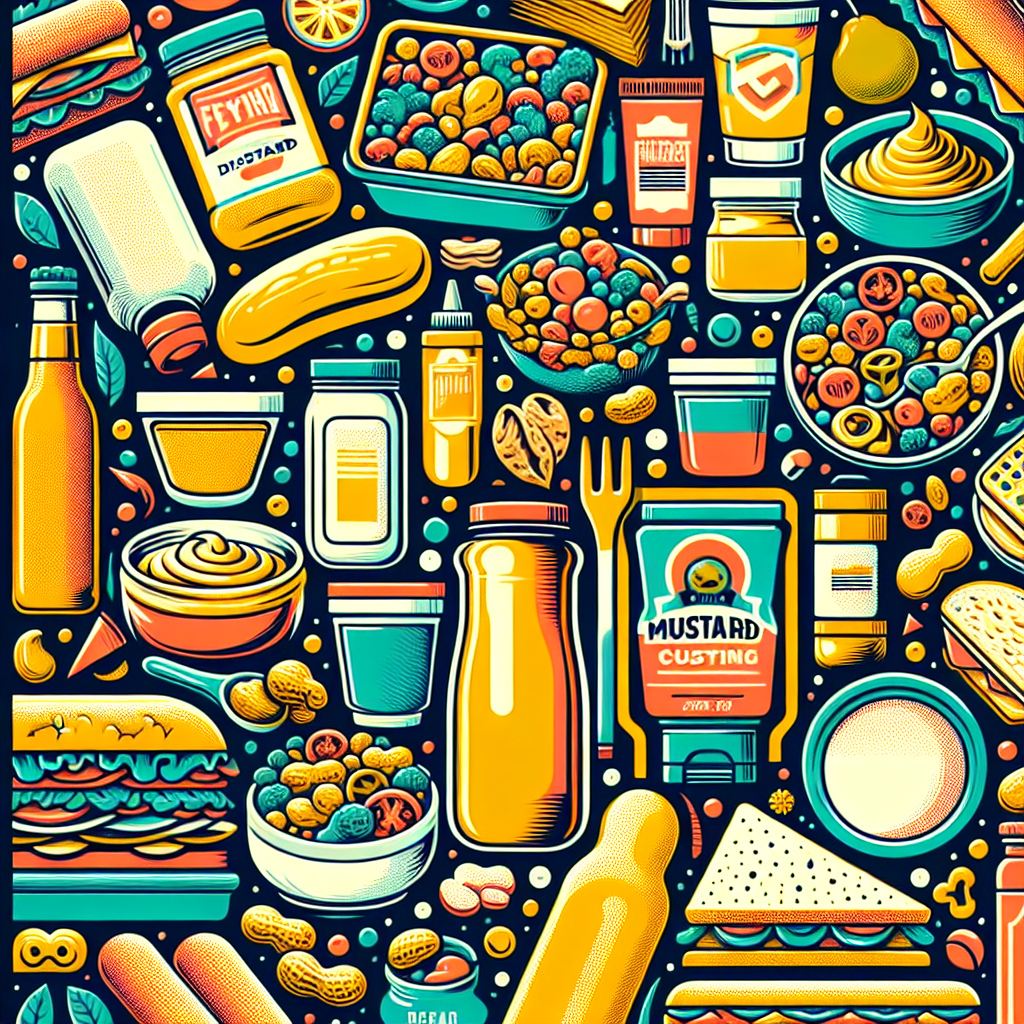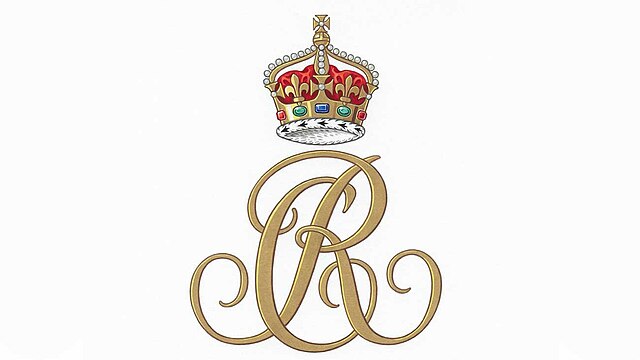The Food Standards Agency (FSA) is warning people with peanut allergies to be careful with foods that might have mustard. Some mustard ingredients might have peanuts in them. These ingredients are in things like dips, sauces, salads, and sandwiches. The FSA is trying to find out which foods are affected, and about 50 items have been taken back from stores because they might have peanuts.
Some products like Dominos dips and SPAR salads are being taken off shelves. This is because the mustard used in them might have peanuts. The mustard comes from a company in India. The FSA wants to keep people safe, so they are being very careful.
Peanut allergies are common and can be very serious. They affect about one in 50 kids. Reactions can be mild or very bad, like trouble breathing or stomach pain. The FSA says it’s important for food labels to show if there’s mustard, so people know if there’s a risk of peanuts. People with peanut allergies should always check food labels to stay safe.
Original news source: Peanut allergy warning over dips and sandwiches (BBC)
🎧 Listen:
Slow
Normal
Fast
📖 Vocabulary:
| 1 | allergies | When your body doesn’t like something and it makes you sick |
| 2 | ingredients | Things that are used to make food |
| 3 | affected | Changed or harmed by something |
| 4 | shelves | Flat surfaces in stores where products are placed |
| 5 | reactions | How your body responds to something |
| 6 | labels | Stickers or tags on products that give information |
| 7 | risk | The chance that something bad might happen |
| 8 | warning | A message to tell you to be cautious |
| 9 | serious | Very important or dangerous |
| 10 | trouble | Problems or difficulties |
| 11 | careful | Paying close attention to avoid danger |
| 12 | common | Happens often or to many people |
Group or Classroom Activities
Warm-up Activities:
– Charades
Instructions: Choose key words from the article (e.g., Food Standards Agency, mustard, peanut allergies, Dominos dips) and act them out without speaking. Have the other students guess the word being acted out.
– News Summary
Instructions: In pairs, summarize the article in your own words. Then, share your summary with another pair. Compare the differences and similarities in your summaries.
– Vocabulary Pictionary
Instructions: Write down key vocabulary from the article (e.g., FSA, mustard, allergies) on separate cards. In groups, take turns picking a card and drawing the word while others guess.
– Opinion Poll
Instructions: Form small groups and discuss whether you think it’s important for food labels to clearly show if there’s mustard due to the risk of peanuts. Take a poll within your group and share the results with the class.
– Keyword Hangman
Instructions: Select key words from the article and play a round of Hangman where students guess the letters to uncover the word. Encourage students to guess the words related to the article.
🤔 Comprehension Questions:
1. What is the Food Standards Agency warning people with peanut allergies about?
2. Why are some products like Dominos dips and SPAR salads being taken off shelves?
3. Where does the mustard that might have peanuts come from?
4. Why is it important for food labels to show if there’s mustard?
5. How many kids are affected by peanut allergies?
6. What are some reactions people with peanut allergies might have?
7. What should people with peanut allergies always do to stay safe when buying food?
Go to answers ⇩
🎧✍️ Listen and Fill in the Gaps:
The Food Standards Agency (FSA) is warning people with peanut allergies to be careful with foods that might (1)______ mustard. Some mustard ingredients might have (2)______ in them. These ingredients are in things like (3)______, sauces, salads, and sandwiches. The FSA is trying to find out which foods are affected, and about 50 items have been (4)______ back from stores because they might have peanuts.
Some products like Dominos dips and (5)______ salads are being taken off (6)______. This is because the mustard used in them might have peanuts. The mustard (7)______ from a company in India. The FSA wants to keep people safe, so they are being very careful.
Peanut allergies are (8)______ and can be very serious. They (9)______ about one in 50 kids. Reactions can be mild or very bad, like trouble breathing or stomach pain. The FSA says it’s important for food labels to show if there’s mustard, so (10)______ know if there’s a (11)______ of peanuts. (12)______ with peanut allergies should always check food labels to stay safe.
Go to answers ⇩
💬 Discussion Questions:
Students can ask a partner these questions, or discuss them as a group.
1. What is a peanut allergy?
2. How would you feel if you had a peanut allergy and found out mustard might have peanuts in it?
3. Do you like eating foods with mustard in them?
4. Do you think it’s important for companies to be careful about what ingredients they use in their products? Why or why not?
5. What would you do if you found out a food you liked might have peanuts in it?
6. How do you think people with peanut allergies can stay safe when eating foods they’re not sure about?
7. Why do you think the FSA is warning people about peanuts in mustard now?
8. What kind of reactions can someone with a peanut allergy have if they eat peanuts?
9. Do you know anyone with a peanut allergy? How do they stay safe?
10. Why is it important for food labels to show all the ingredients used in a product?
11. How can food companies make sure their products are safe for people with allergies?
12. What do you think the FSA should do to prevent peanuts from being in foods that shouldn’t have them?
Individual Activities
📖💭 Vocabulary Meanings:
Match each word to its meaning.
Words:
1. allergies
2. ingredients
3. affected
4. shelves
5. reactions
6. labels
7. risk
8. warning
9. serious
10. trouble
11. careful
12. common
Meanings:
(A) When your body doesn’t like something and it makes you sick
(B) Happens often or to many people
(C) Problems or difficulties
(D) A message to tell you to be cautious
(E) Things that are used to make food
(F) Paying close attention to avoid danger
(G) Very important or dangerous
(H) Flat surfaces in stores where products are placed
(I) Changed or harmed by something
(J) The chance that something bad might happen
(K) How your body responds to something
(L) Stickers or tags on products that give information
Go to answers ⇩
🔡 Multiple Choice Questions:
1. Why is the Food Standards Agency warning people with peanut allergies about foods with mustard?
(a) Mustard tastes bad
(b) Mustard is too spicy
(c) Some mustard ingredients might have peanuts
(d) Mustard is too salty
2. What kinds of foods might have mustard ingredients with peanuts in them?
(a) Cakes and cookies
(b) Ice cream and pizza
(c) Dips, sauces, salads, and sandwiches
(d) Apples and bananas
3. Why have about 50 items been taken back from stores?
(a) They are expired
(b) They are too expensive
(c) They are too small
(d) They might have peanuts
4. Which products are being taken off shelves due to the peanut risk?
(a) McDonald’s burgers and KFC chicken
(b) Subway sandwiches and Starbucks coffee
(c) Pizza Hut pizzas and Taco Bell tacos
(d) Dominos dips and SPAR salads
5. Where does the mustard that might have peanuts come from?
(a) India
(b) Italy
(c) Brazil
(d) China
6. How many kids are affected by peanut allergies?
(a) About one in 10
(b) About one in 50
(c) About one in 100
(d) About one in 25
7. What can reactions to peanut allergies be like?
(a) Mild or very bad, like trouble breathing or stomach pain
(b) Happy and excited
(c) Sleepy and tired
(d) Hungry and thirsty
8. Why is it important for food labels to show if there’s mustard?
(a) To make the labels colorful
(b) So people know if there’s a risk of peanuts
(c) To confuse people
(d) To make the labels bigger
Go to answers ⇩
🕵️ True or False Questions:
1. The FSA is investigating which foods might be affected, and around 50 items have been removed from stores.
2. Ingredients with peanuts are found in dips, sauces, salads, and sandwiches.
3. Some mustard ingredients could not have peanuts in them, which can be dangerous for people with peanut allergies.
4. Peanut allergies are common and can be very serious, affecting about one in 50 kids.
5. The Food Standards Agency is warning people with peanut allergies to be careful with foods that might have mustard.
6. Products like Dominos dips and SPAR salads are not being taken off shelves because the mustard in them might contain peanuts.
7. The mustard that might have peanuts comes from a company in France.
8. It’s unimportant for food labels to mention if there’s mustard so people with peanut allergies can avoid the risk of peanuts.
Go to answers ⇩
📝 Write a Summary:
Write a summary of this news article in two sentences.
Check your writing now with the best free AI for English writing!
Writing Questions:
Answer the following questions. Write as much as you can for each answer.
Check your answers with our free English writing assistant!
1. Why is the Food Standards Agency warning people with peanut allergies to be careful with foods that might have mustard?
2. What kinds of foods might have mustard ingredients that could contain peanuts?
3. Why are some products like Dominos dips and SPAR salads being taken off shelves?
4. How many kids are affected by peanut allergies?
5. Why is it important for food labels to show if there’s mustard in the ingredients?
✅ Answers
🤔✅ Comprehension Question Answers:
1. What is the Food Standards Agency warning people with peanut allergies about?
The Food Standards Agency is warning people with peanut allergies to be careful with foods that might have mustard because some mustard ingredients might have peanuts in them.
2. Why are some products like Dominos dips and SPAR salads being taken off shelves?
Some products like Dominos dips and SPAR salads are being taken off shelves because the mustard used in them might have peanuts in it.
3. Where does the mustard that might have peanuts come from?
The mustard that might have peanuts comes from a company in India.
4. Why is it important for food labels to show if there’s mustard?
It’s important for food labels to show if there’s mustard so people with peanut allergies know if there’s a risk of peanuts in the food.
5. How many kids are affected by peanut allergies?
About one in 50 kids are affected by peanut allergies.
6. What are some reactions people with peanut allergies might have?
People with peanut allergies might have reactions like trouble breathing or stomach pain.
7. What should people with peanut allergies always do to stay safe when buying food?
People with peanut allergies should always check food labels to make sure there are no peanuts in the food they are buying.
Go back to questions ⇧
🎧✍️✅ Listen and Fill in the Gaps Answers:
(1) have
(2) peanuts
(3) dips
(4) taken
(5) SPAR
(6) shelves
(7) comes
(8) common
(9) affect
(10) people
(11) risk
(12) People
Go back to questions ⇧
📖💭✅ Vocabulary Meanings Answers:
1. allergies
Answer: (A) When your body doesn’t like something and it makes you sick
2. ingredients
Answer: (E) Things that are used to make food
3. affected
Answer: (I) Changed or harmed by something
4. shelves
Answer: (H) Flat surfaces in stores where products are placed
5. reactions
Answer: (K) How your body responds to something
6. labels
Answer: (L) Stickers or tags on products that give information
7. risk
Answer: (J) The chance that something bad might happen
8. warning
Answer: (D) A message to tell you to be cautious
9. serious
Answer: (G) Very important or dangerous
10. trouble
Answer: (C) Problems or difficulties
11. careful
Answer: (F) Paying close attention to avoid danger
12. common
Answer: (B) Happens often or to many people
Go back to questions ⇧
🔡✅ Multiple Choice Answers:
1. Why is the Food Standards Agency warning people with peanut allergies about foods with mustard?
Answer: (c) Some mustard ingredients might have peanuts
2. What kinds of foods might have mustard ingredients with peanuts in them?
Answer: (c) Dips, sauces, salads, and sandwiches
3. Why have about 50 items been taken back from stores?
Answer: (d) They might have peanuts
4. Which products are being taken off shelves due to the peanut risk?
Answer: (d) Dominos dips and SPAR salads
5. Where does the mustard that might have peanuts come from?
Answer: (a) India
6. How many kids are affected by peanut allergies?
Answer: (b) About one in 50
7. What can reactions to peanut allergies be like?
Answer: (a) Mild or very bad, like trouble breathing or stomach pain
8. Why is it important for food labels to show if there’s mustard?
Answer: (b) So people know if there’s a risk of peanuts
Go back to questions ⇧
🕵️✅ True or False Answers:
1. The FSA is investigating which foods might be affected, and around 50 items have been removed from stores. (Answer: True)
2. Ingredients with peanuts are found in dips, sauces, salads, and sandwiches. (Answer: True)
3. Some mustard ingredients could not have peanuts in them, which can be dangerous for people with peanut allergies. (Answer: False)
4. Peanut allergies are common and can be very serious, affecting about one in 50 kids. (Answer: True)
5. The Food Standards Agency is warning people with peanut allergies to be careful with foods that might have mustard. (Answer: True)
6. Products like Dominos dips and SPAR salads are not being taken off shelves because the mustard in them might contain peanuts. (Answer: False)
7. The mustard that might have peanuts comes from a company in France. (Answer: False)
8. It’s unimportant for food labels to mention if there’s mustard so people with peanut allergies can avoid the risk of peanuts. (Answer: False)
Go back to questions ⇧













